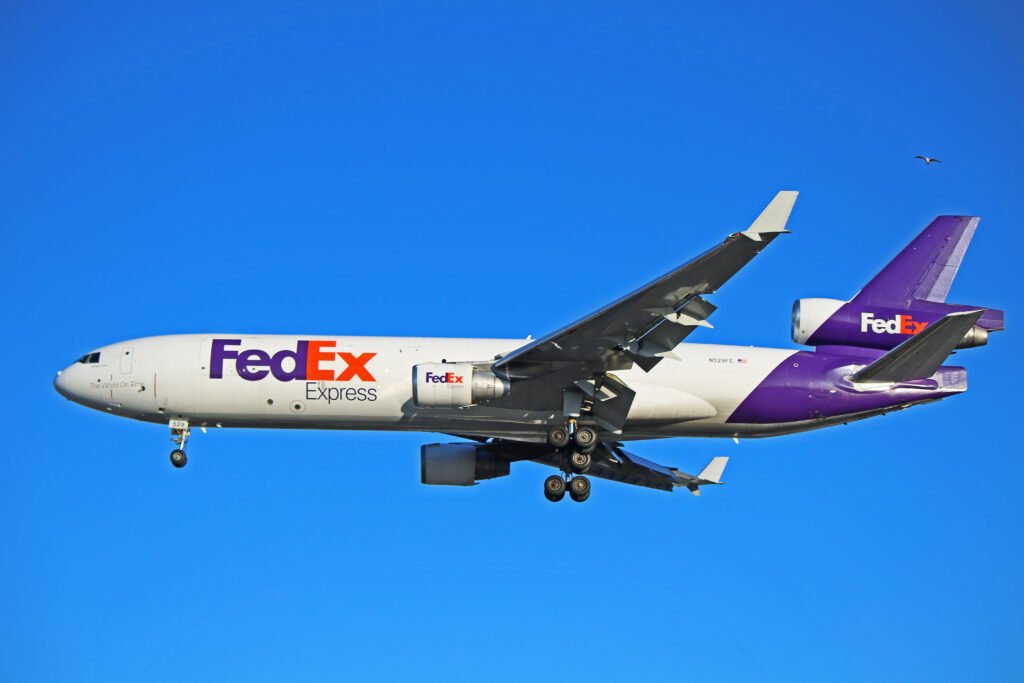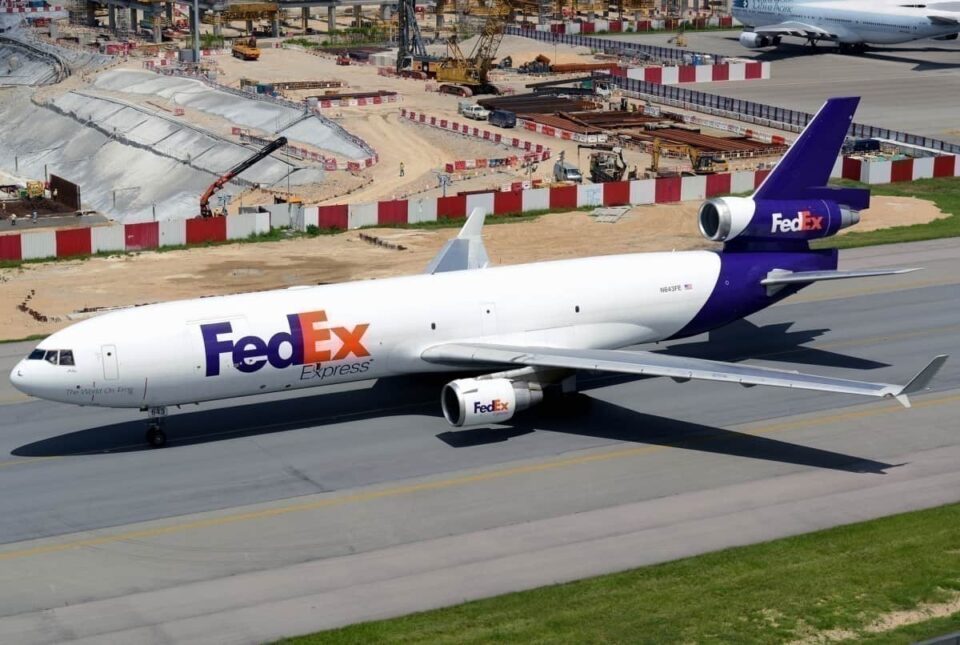The logistics carrier wants to lower the cost of operating and purchasing new aircraft.
In order to eliminate $6 million in structural and incremental costs from its books, Memphis-based FedEx has revealed plans to concentrate more on overland transportation rather than flying. The operator seeks to reorient its operations to be in line with a point-to-point service as opposed to its existing fly-fly-fly strategy. This will strengthen its hub-and-spoke network and eliminate its current milk run, when the operator may make multiple stops en route from its starting point to its end terminus.

The industry titan in transportation and e-commerce will also try to change its business strategy to concentrate on truck deliveries to its main distribution centers for less operations using the air. FedEx anticipates retiring the remaining 58 McDonnell Douglas MD-11 carriers by 2028, hastening the withdrawal of these aircraft from the books. The majority of the operator’s MD-11s are owned and flown by the operator, however seven of them are still under leases that end between 2023 and 2025. The majority are in their mid-30s on average.
making use of contractors
According to ch-Aviation, FedEx will now look to independent contractors and outside service providers, which will reduce the operator’s costs for staff, maintenance, and fuel. FedEx President and Chief Operating Officer Raj Subramaniam stated in a quarterly investor call, as quoted by ch-Aviation:
The restructuring of our air network is a component of this effort [to reduce expenses]. There are other actions that must be taken, such the ones being designed now to gradually phase out our fleet of MD-11Fs. We have reached a crossroads: will we observe a high-demand environment or a low-demand environment? That flex fleet’s designation was MD-11F. Additionally, we no longer see that high demand manifesting itself as we examine the current demand climate.
Lowering of the Pacific
In the coming years, as shipment operations are expected to be consolidated, the operator aims to reduce activities in the Pacific by about 30%. FedEx also stated that, aside from urgent, high-priority overnight shipments, operations within the United States would change to support ground transportation as its primary and default alternative. Subramaniam continued, elaborating:
To address our fixed expense structure, we are taking further action. We cut back on flight hours by 8% and pay and benefit costs by 4% this quarter. We downgauged on several flights, added nine more aircraft to parking, and made several productivity improvements.
Richard Smith, CEO of FedEx Express, anticipates that modifications to the operator’s aircraft operations will result in annual savings of about $250 million. However, it will continue with its present purchase for 27 B767-300Fs and six B777-200Fs in an effort to update its fleet. The operator now has 111 airplanes in storage out of the 486 it possesses in total. The carrier’s $2.3 billion budget for new aircraft in FY22 will shrink to $1.5 billion by FY25. Smith reiterating the action:




